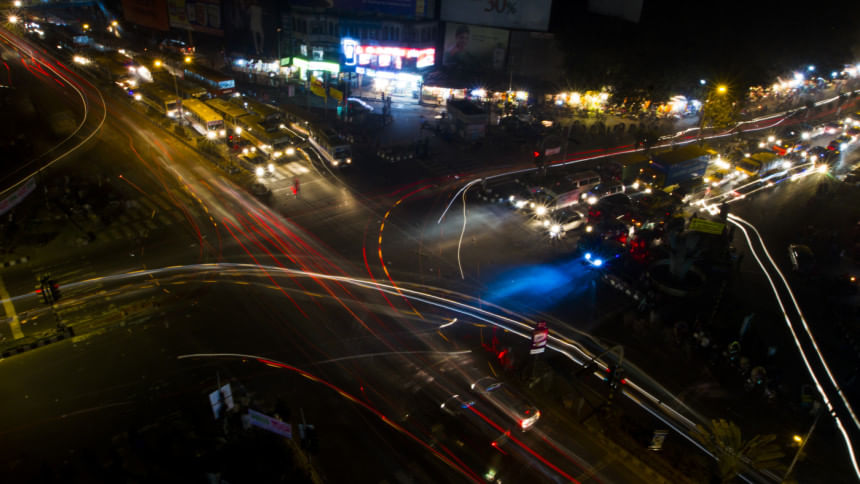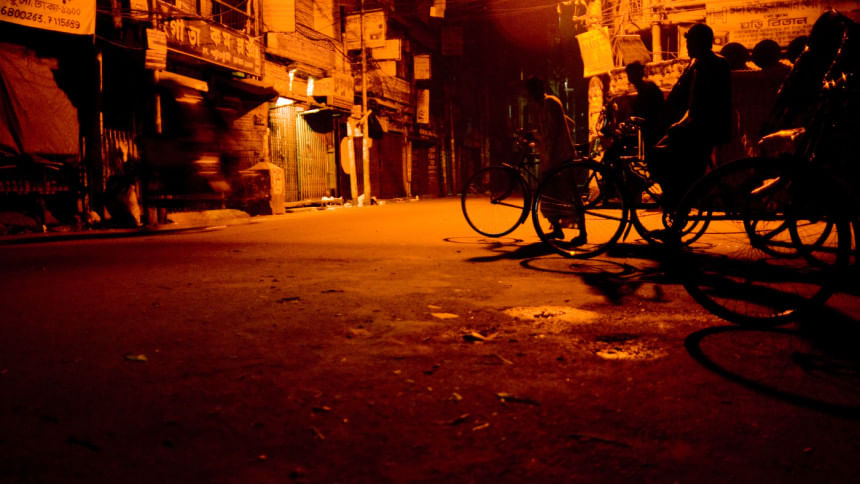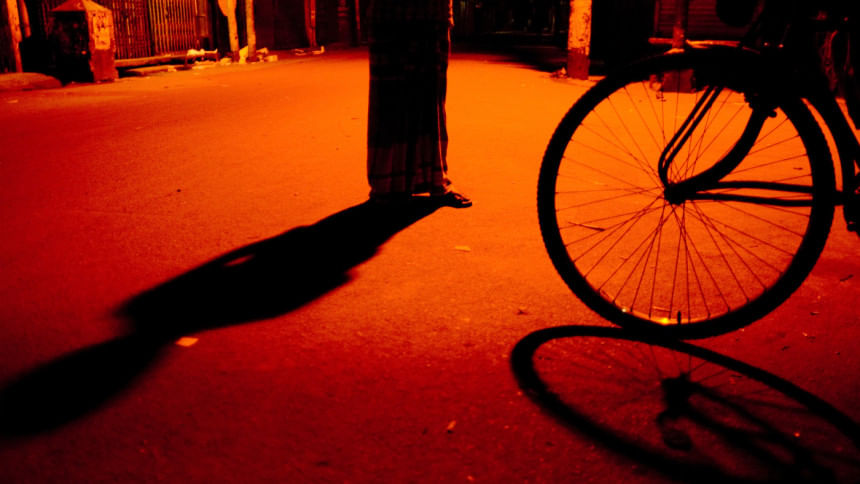The lives that keep the city alive

Have we ever stopped to wonder when the ATM machines refill themselves? Or who stocks the shelves of our favourite stores before we walk in the morning? Who guards our streets while the rest of the city sleeps? And who, beneath the weight of more than 22 million people, carries the night on their shoulders so that the day can run without pause?
Night-time Dhaka is nothing like its daytime self. The congested roads, the honking horns, the endless arguments between cars and rickshaws all vanish after sunset. The city, so restless in daylight, finally exhales. For most, the night means rest. But for a few, it is when life begins.
At a small roadside hotel near Dhaka Medical College, a man named Lokman has been serving tea and meals late into the night for years. He prefers it this way. "The rush of customers is manageable, so I can work with a peaceful mind," he said.
But not all night-time work brings comfort. For Fazlur Bari, who has guarded ATMs for almost a decade, the silence brings unease. "I like the environment but I don't like working at night. My job is already lonely. At night, it becomes lonelier. I provide security for others, but I worry about my own."

Beyond the workers are the unseen lives that stir only at night: street dogs patrolling like unofficial guards, homeless people laying claim to small patches of pavement, and trucks unloading supplies that keep the city running the next day. Night-time is when Dhaka's invisible economy breathes freely -- the stocking of goods, the movement of money, the flow of labour that make daytime life appear seamless.
For some, the city at night feels entirely different. Jubayer Mahmud Khan, who works nights for a foreign company, said, "I go to the office in the evening and spend most of my hours inside. But when I return home around four in the morning, I see a new Dhaka. The chilly air, the empty roads, the people sleeping on the sidewalks -- I notice them then. It feels like the city shows me a side it doesn't reveal otherwise."
For others, the night carries both convenience and danger. Sauvik Debnath, who works in cash management, enjoys the traffic-free streets but worries about safety. "Public transport is rare, so I spend extra on bikes or rickshaws. That's when the risk grows. Once, I was attacked while returning from work. They took my wallet and phone. So, you see, the night is peaceful, but also dangerous."

Some, however, thrive in it. A rickshaw puller explained why he prefers the night shift. "Even though I get fewer passengers, I can drive easily and more efficiently because the roads are empty. The rides are enjoyable, and for me, night-time is actually more profitable."
Perhaps this is the true nature of Dhaka after dark: a city stripped of its façade. Most will never know this version except in fleeting glimpses -- on a late drive home, crossing a road before dawn, or gazing out of a window when sleep won't come. But for those who live and work in it, night-time Dhaka is not an intermission. It is their shift, their solitude, their risk, their discovery. It is, in its own way, another city altogether.

 For all latest news, follow The Daily Star's Google News channel.
For all latest news, follow The Daily Star's Google News channel. 



Comments